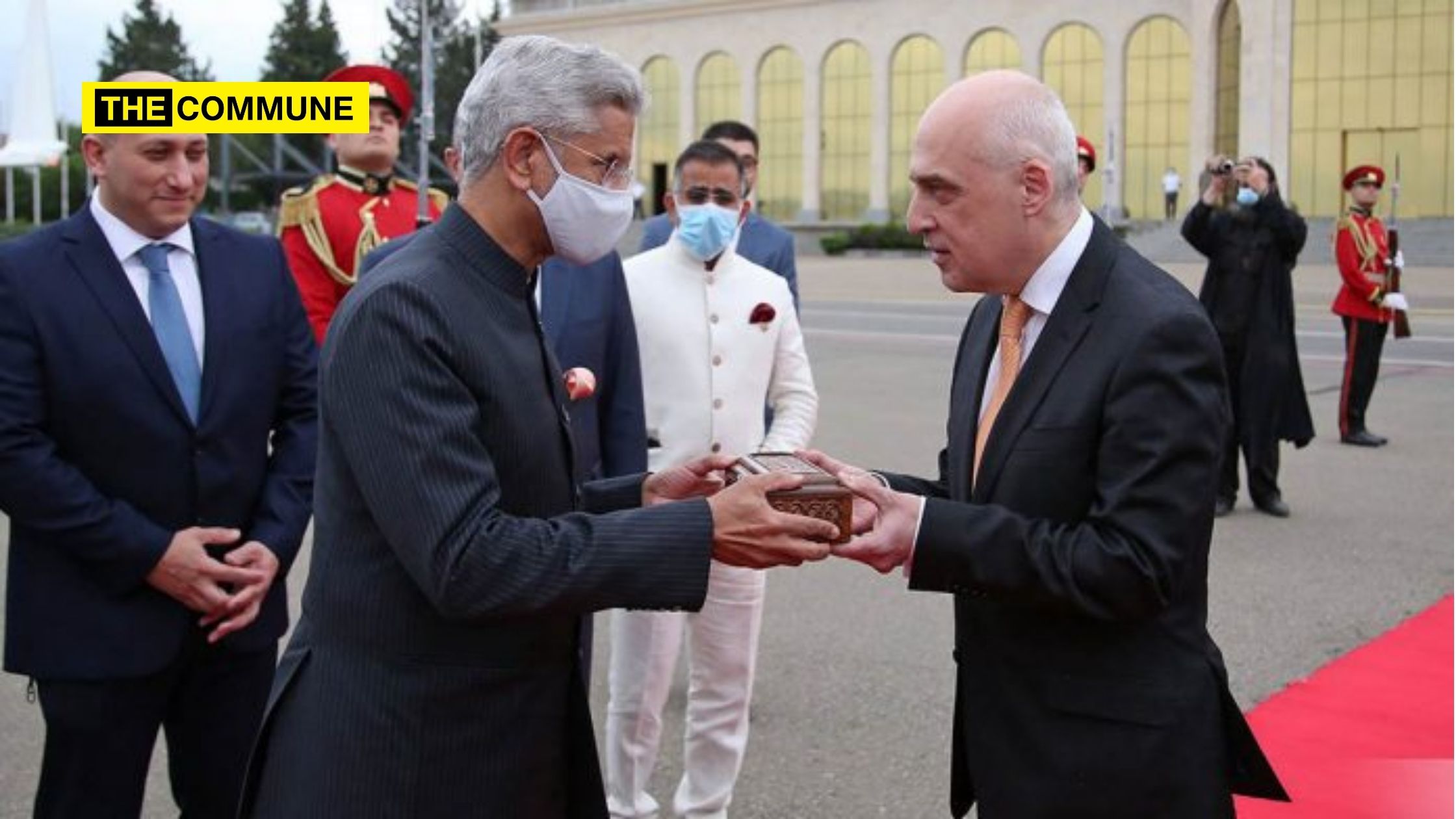
In the last few weeks India has gone on a diplomatic offensive and in a great gesture the Indian External Affairs Minister Dr. S. Jaishankar handed over to the Georgian government a relic belonging to St Queen Ketevan, a royal from the 17th-century, taking bilateral ties to a “new level”.
Jaishankar handed over this important national relic of Georgia to his counterpart David Zalkaliani who is also the Vice-Prime Minister of the country when he was on a two-day visit to this former state in the Soviet Union.
The relic was handed over to His Holiness and Beatitude Ilia II, the Catholicos-Patriarch of Georgia or the spiritual head of the Georgian Orthodox Church, and Prime Minister Irakli Garibashvili.
The relic belonging to St Queen Ketevan was excavated in Goa in 2016, and the ruling Georgian Dream Democratic Party called this as an “unprecedented” gesture and one which will be “remembered and appreciated”.
St Queen Ketevan has deep reverence among Georgians as a martyr of the faith of Christianity who refused to convert to Islam even though this led to her death.
St Queen Ketevan, also known as Ketevan the Martyr, was the queen of Kakheti, a kingdom in eastern Georgia in the 17th century, and was married to Prince David of Kakheti, who later became the king in 1601. However, he died just a year later in 1602 and after the death of her husband, she devoted herself to religious and charitable activities as her father in law Alexander II became king
Alexander II was killed during the war with the Safavid Dynasty and his other son Constantine I, converted to Islam at the Safavid court of Shah Abbas but he eventually died in a battle led by Queen Ketevan.
However, in 1613, Shah Abbas I conquered Kakheti and took Queen Ketevan hostage in Shiraz. He made several attempts to convert her to Islam and join his harem which she refused and the queen was later strangled to death on 22 September 1624.
In 2016, the Archaeological Survey of India (ASI) managed to locate the queen’s remains that were found at the Old Goa building.
“We have been able to establish that the remains found in St Augustine Complex in Goa were that of Queen Ketevan of Kakheti in Georgia,” N. Taher, Superintending Archaeologist, Archaeological Survey of India (ASI), Hyderabad Circle, had said while announcing the discovery.
“Considering the importance of Queen Ketavan for the Georgian people, Soviet Union-Russian-Georgian officials requested the Government of India to help in tracing the relics of Queen (Saint) Ketevan in Goa,” the paper said.
After the relic was discovered, the Georgian government has been urging India to hand them over and in 017, at Georgia’s request, India sent the relics to the country for an exhibition for six months which was accepted by His Holiness and Beatitude Ilia II along with many Georgians on 23 September 2017.
However, the Indian government decided to accept the demand for the permanent transfer of the relics due to its historical, religious, and spiritual sentiments that are attached to St Queen Ketevan by the Georgian people, and also this gesture will “strengthen” the bonds of friendship and understanding between India and Georgia.
Click here to subscribe to The Commune on Telegram and get the best stories of the day delivered to you personally.




